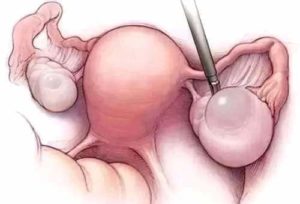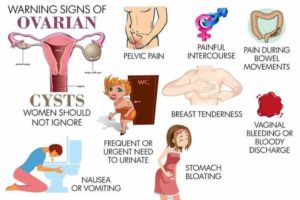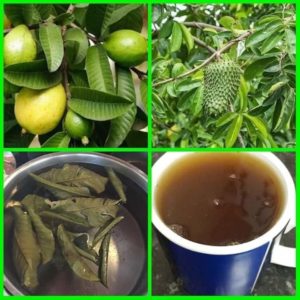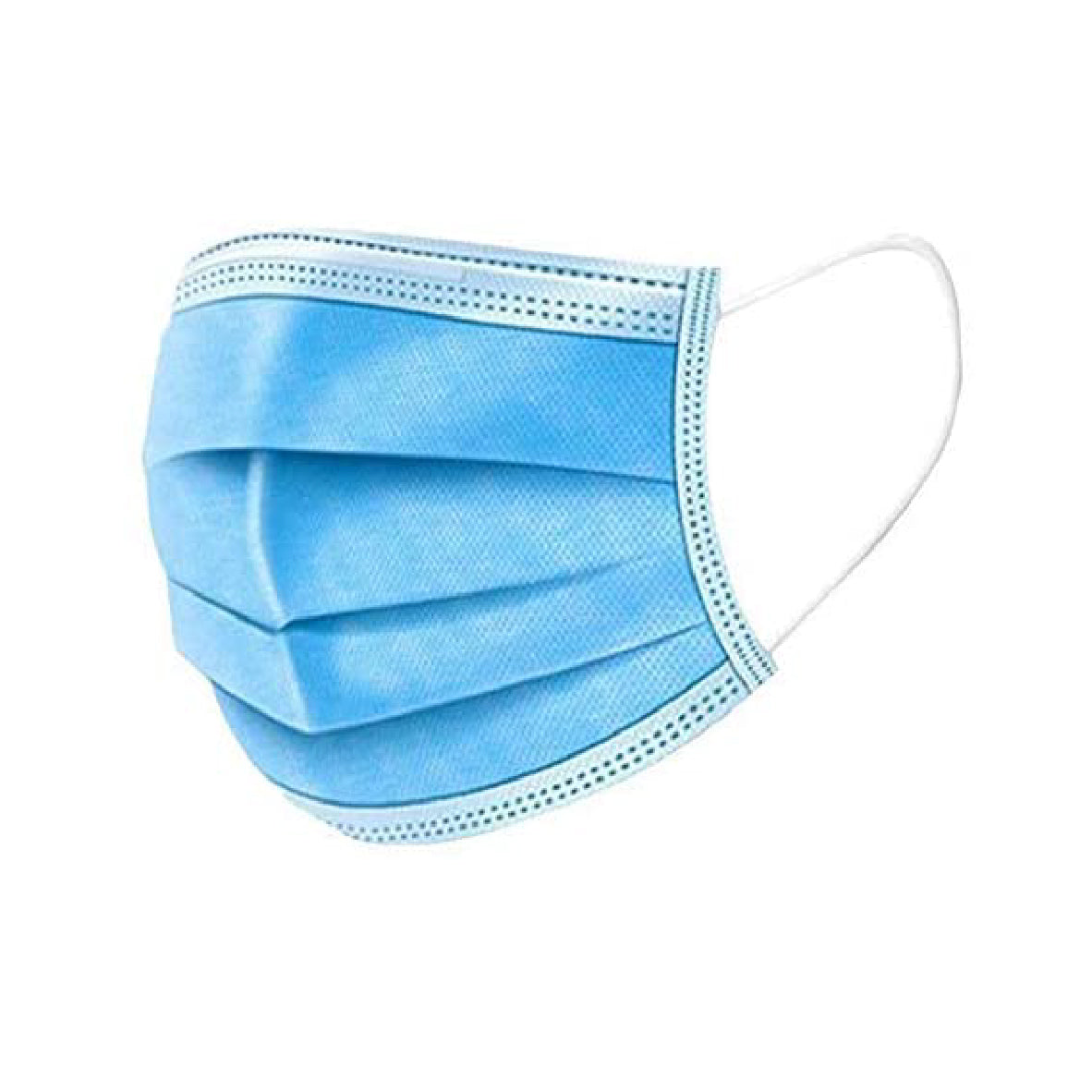Ovarian cysts are fluid-filled growths that develop in a woman’s ovaries, and they can occur in one or both ovaries. These cysts can be quite distressing for women, as they often cause severe, sharp pains that can sometimes be worse than labour pains.

In some cases, ovarian cysts can grow to a large size and cause displacement of the reproductive organs or even twist themselves, leading to further complications. A ruptured ovarian cyst can result in scar tissue formation and adhesion, where the ovary becomes attached to other internal body parts.
While ovarian cysts are most common in women of childbearing age, they can rarely develop in postmenopausal women as well. The ovaries themselves are about the size and shape of an almond.

CAUSES OF OVARIAN CYSTS
There are several factors that can contribute to the development of ovarian cysts:
A. Irregular menstrual cycles
B. Emergency or Morning after pills
C. Hormonal imbalance
D. Infections
E. Cigarette smoking
Certain medical treatments can also increase the risk of ovarian cysts, such as infertility treatment with gonadotropins or the use of medications like Clomiphene (Clomid, Serophene) and Tamoxifen for breast cancer.
SYMPTOMS OF OVARIAN CYSTS
While some ovarian cysts may not cause any signs or symptoms and are discovered during routine physical exams, larger cysts are more likely to cause symptoms. Common symptoms of ovarian cysts include:
1. Pelvic pain, usually on the side where the cyst is present. The pain may be sharp, sudden, or intermittent throughout the menstrual cycle.
Follow up question:
2. Vaginal pain with spotty bleeding.
3. Pressure and/or abdominal bloating, which may be noticeable on one side.
4. Pain or pressure in the abdomen during urination or bowel movements.
5. Infertility.
TYPES OF OVARIAN CYSTS AND SOLUTIONS FOR INFERTILITY ISSUES
Ovarian cysts can vary in their types and can contribute to infertility problems in some cases. Understanding the different types of ovarian cysts and finding solutions for infertility issues is crucial.
Ovarian cysts can be classified into various types, including:
1. Functional cysts: These are the most common type of ovarian cysts and are usually harmless. They form as a part of the normal menstrual cycle and include follicular cysts and corpus luteum cysts.
2. Dermoid cysts: These cysts are formed from cells that produce human eggs. They can contain tissues such as hair, skin, and even teeth.
3. Endometriomas: These cysts develop in women with endometriosis, a condition where the tissue lining the uterus grows outside of it. Endometriomas can affect fertility.
4. Cystadenomas: These cysts develop from the surface of the ovaries and can be filled with a watery or mucous fluid.
5. Polycystic Ovary Syndrome (PCOS): PCOS is a hormonal disorder characterized by the presence of multiple small cysts on the ovaries. It can cause irregular periods and fertility issues.
Solutions for Ovarian Cysts and Infertility Problems:
1. Monitoring and observation: In many cases, small ovarian cysts may resolve on their own without any intervention. Regular monitoring through ultrasound exams can help track the size and appearance of the cysts.
2. Medications: Hormonal birth control pills or other medications may be prescribed to regulate the menstrual cycle and prevent the formation of new cysts.
3. Surgical intervention: If the cysts are large, causing severe symptoms, or affecting fertility, surgery may be recommended. This can involve removing the cysts while preserving the ovaries or, in some cases, removing one or both ovaries.
4. Fertility treatments: For individuals experiencing infertility related to ovarian cysts or other underlying issues, fertility treatments such as in vitro fertilization (IVF) or intrauterine insemination (IUI) may be recommended.
Remember, it’s important to consult with a healthcare professional for an accurate diagnosis and personalized treatment plan if you suspect you have ovarian cysts or are facing infertility issues.
Does an ovarian cyst affect pregnancy?
Most ovarian cysts do not affect the patient’s pregnancy. If you are a patient with endometriosis or polycystic ovary syndrome, it will be difficult to conceive. It is recommended to go to the hospital for infertility treatment to increase the chance of conception.
NATURAL/HERBAL SOLUTIONS TO OVARIAN CYST AND OTHER INFERTILITY PROBLEMS

Take guava leaves and soursop, and wash them well. Boil them together and sieve them.
Drink warm-morning and evening, half a cup.
These leaves are good for cleaning the uterus, ovarian cysts, FALLOPIAN TUBE, TUMORS AND CANCER, low sperm count etc.
SIDE EFFECT: It causes a drop in blood pressure, so it is also good for people who have high blood pressure …
But if you already have low blood pressure, then you can do this treatment by drinking it for two weeks and taking a break of a week or two weeks before continuing.
COMBINATION OF GUAVA AND SOURSOP LEAF TEA
This mixture works perfectly !!!
HOW TO PREPARE:
Take guava leaves and soursop, and wash them well. Boil them together and sieve them .
Drink warm … Morning and evening, half a cup .
These leaves are good for cleaning the uterus, ovarian cysts, FALLOPIAN TUBE, TUMORS AND CANCER, low sperm count ….. etc.
SIDE EFFECT: It causes a drop in blood pressure, so it is also good for people who have high blood pressure …
But if you already have low blood pressure, then you can do this treatment by drinking it for two weeks and taking a break for a week or two weeks before continuing.
INFERTILITY IS A COMMON FACTOR SEEN IN MANY HOMES TODAY
There are ways by which one can boost their fertility as a woman for easy access to Quick conception (pregnancy)
This Remedy works for you when you don’t have these (six common issues many women face that cause infertility) which are:
-Fibroid
-Infection
-Pelvic Inflammatory disease
-Hormonal inbalance
-Ovarian cyst
– Fallopian tube blockage
INGREDIENTS
-WATER LEAF
-IMMATURE COCONUT
-HONEY
HOW TO USE IT
-Extract the juice of water leaf, sieve out this water separately, and keep it aside
-Now blend the inside of Immature coconut, that is the white one and add your water
-Now get a bottle of honey and mix both the water leaf juice, and coconut, and be taken two short mornings and nights for 14 days
Contact Dr Iyke for clarification regarding solutions at 0508397239.
 Pazionmedia.com Pazion Media l Latest News l Politics l Sports l Entertainment
Pazionmedia.com Pazion Media l Latest News l Politics l Sports l Entertainment



